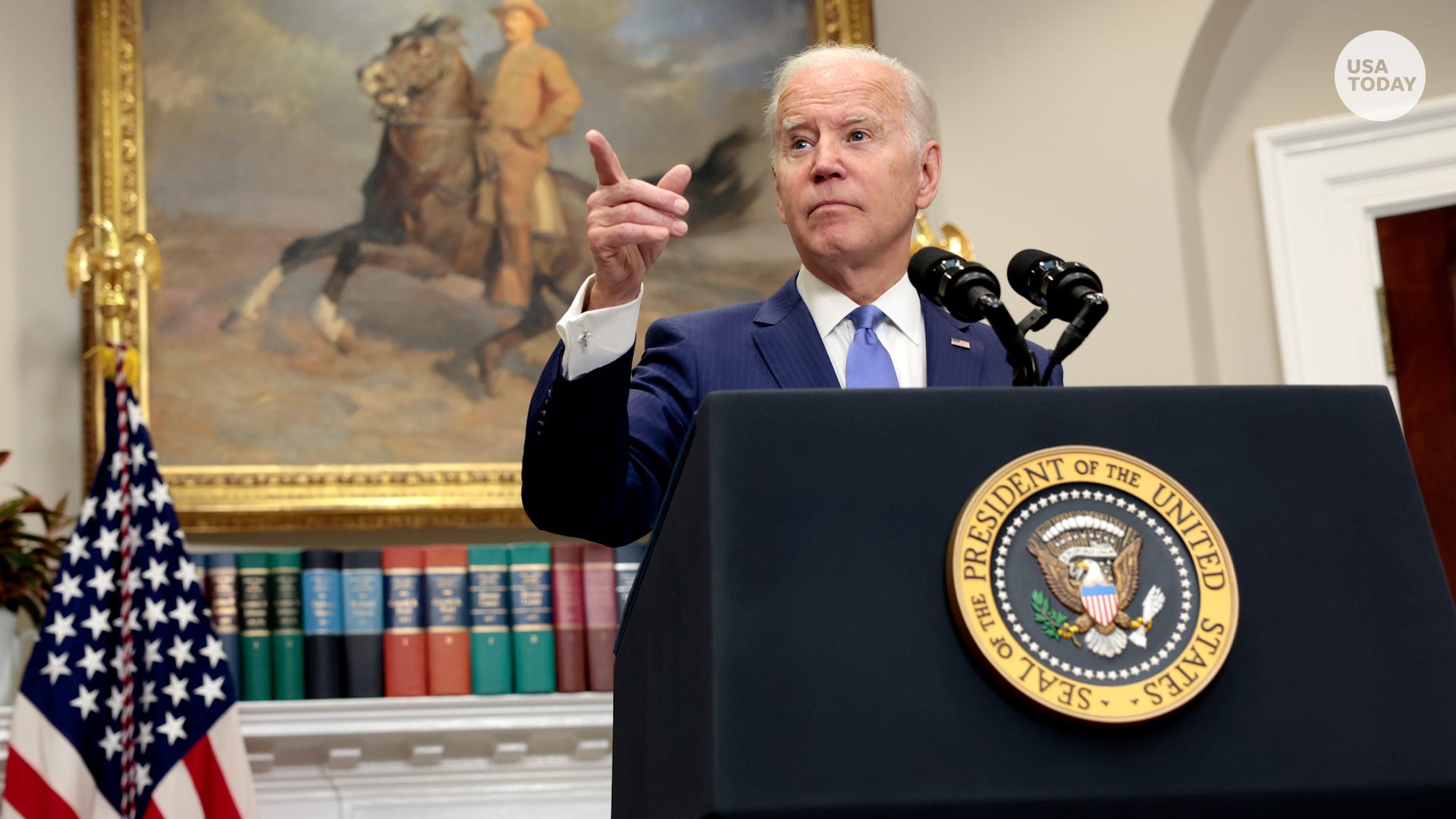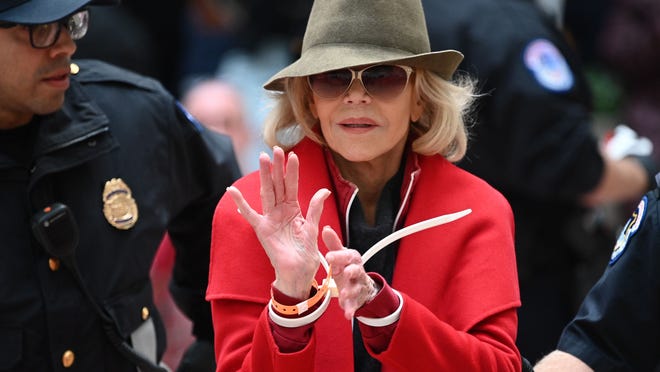

President Joe Biden vetoed Wednesday a bill that would repeal his signature plan to forgive student loan debt for tens of millions of Americans, salvaging a key issue of his presidency that remains under siege at the Supreme Court.
“I won’t back down on helping hardworking folks,” Biden said in a tweet that included a video of him rejecting the legislation. “That’s why I’m vetoing this bill.”
The rejection marked the fifth veto of Biden presidency but this one might especially sting: Loan forgiveness was a significant campaign pledge for Biden, and all of his attempts to ease life for borrowers are under attack.
Part of the debt ceiling deal Congress approved this month, for instance, strikes the pause on student loan payments that's been in effect since the start of the pandemic. Though it began under former President Donald Trump, Biden extended it repeatedly, and it costs the country about $5 billion a month.
The bill Biden vetoed, which cleared both chambers of Congress largely along party lines, would have undone the president's proposal from last fall that would erase up to $20,000 in student loan balances. Democrats said the bill had the potential to undo loan forgiveness for teachers, police officers and other public workers under a separate federal program as well.
The end of the payment pause:Speaker McCarthy says freeze on student loan payments 'gone' under debt ceiling deal. Here’s what that means.
Rejection of Biden's loan forgiveness plan was symbolic
Still, the bill's passage was symbolic: A pair of cases before the Supreme Court, which could be decided this month, halted the loan forgiveness program from moving forward months ago. Ahead of that, however, some 16 million borrowers had been approved to have some or all of their outstanding student loan balances forgiven.
Student loan payments were set to resume within 60 days of the court's ruling, as well, so it's not clear how much the debt ceiling deal will accelerate that timeline. The legislation designates a timeline of 60 days after June 30. The court is expected to have ruled by around then.
Biden blamed Republicans for leading the effort to block the loan forgiveness program but the bill passed the Democrat-controlled Senate with the support of two Democrats: Joe Manchin of West Virginia and Jon Tester of Montana. Arizona Sen. Krysten Sinema, an independent, also voted for it.
Republican Sen. Bill Cassidy of Louisiana, who led the charge on repealing Biden's plan in his chamber, noted repeatedly that most people don't have any student loan debt and other taxpayers shouldn't be stuck with paying off that of others. "87% of Americans didn’t take out student loans or responsibly paid them back. These schemes are unfair and irresponsible," he tweeted shortly after the Senate vote.
Many Senate Democrats criticized the congressional maneuver, however, and pushed back against Republican claims that the measure would disproportionately benefit wealthier Americans. Sen. Ed Markey of Massachusetts labeled it "cruel."
“The loan forgiveness the president is proposing would mean the difference between buying a home, starting a business, and getting an economic leg up for nearly 50 million working and middle-class Americans, particularly for borrowers of color and their families," Markey said in a statement after the Senate voted. "If you kicked Republicans in the heart, you’d break your toe.”
Americans are split on debt forgivenessas Supreme Court gears up to rule on student loan cases,
In a message ahead of the vote in the House saying that Biden would veto the bill, the White House affirmed the federal Education Department's authority to protect borrowers during national emergencies and accused legislators of trying to harm middle-class Americans.
The administration also highlighted the fact that nearly 90% of the relief would go to Americans earning less than $75,000. None would go to anyone in the top 5% of income, Biden re-emphasized Wednesday.
"The demand for this relief is undeniable," he said.







